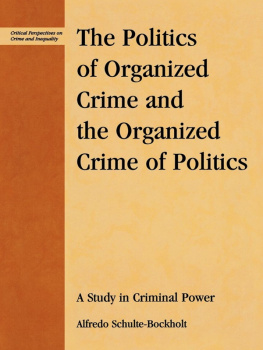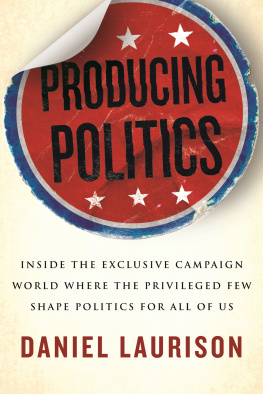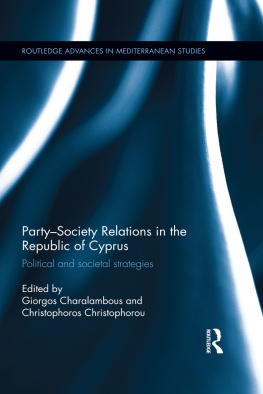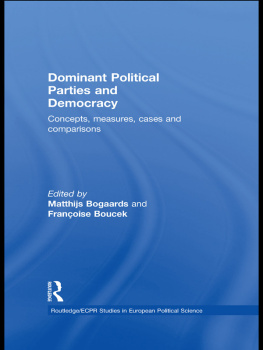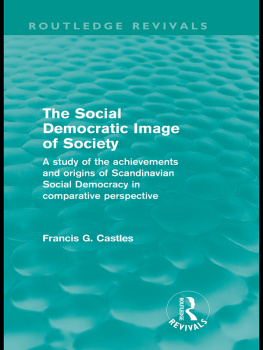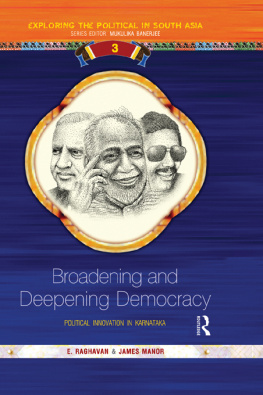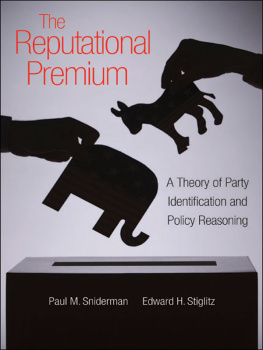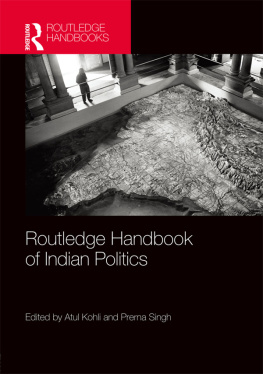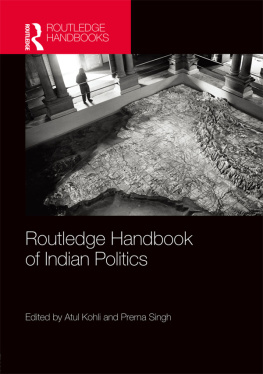When Crime Pays
When Crime Pays
Money and Muscle in Indian Politics
Milan Vaishnav

Copyright 2017 by Milan Vaishnav.
All rights reserved.
This book may not be reproduced, in whole or in part, including illustrations, in any form (beyond that copying permitted by Sections 107 and 108 of the U.S. Copyright Law and except by reviewers for the public press), without written permission from the publishers.
Yale University Press books may be purchased in quantity for educational, business, or promotional use. For information, please e-mail sales.press@yale.edu (U.S. office) or sales@yaleup.co.uk (U.K. office).
Set in Sabon type by Newgen North America.
Printed in the United States of America.
Library of Congress Control Number: 2016945528
ISBN 978-0-300-21620-2 (cloth : alk. paper)
A catalogue record for this book is available from the British Library.
This paper meets the requirements of ANSI/NISO Z39.48-1992 (Permanence of Paper).
10 9 8 7 6 5 4 3 2 1
For Sheba, who endured
Contents
Preface
Indias 2014 general election was the largest democratic exercise ever undertaken. On nine separate polling days staggered over six weeks, 554 million voters queued up at more than 900,000 polling stations to cast their ballots in favor of one of 8,251 candidates representing 464 political parties.
While the numbers were overwhelming, so too was the verdict. For the first time in three decades, Indians delivered a majority of seats in the lower house of Parliament (known as the Lok Sabha) to a single political partythe opposition Bharatiya Janata Party (BJP). The stunning result was the product of deep-seated disenchantment with the ruling Indian National Congress (INC), whose second term in office was marked by a slowing economy and besmirched by a series of sordid corruption scandals, as well as the personal and professional appeal of former Gujarat Chief Minister Narendra Modi, who led the BJP campaign.
Modis record in Gujarat was far from untarnished; in the early months of his tenure, violence between Hindus and Muslims left more than 1,000 people dead, and the state government appeared either unwilling or unable to stem the bloodshed. Nevertheless, Modis tenure in the state was marked by a galloping economy, the fastest growing among Indias states. On the whole, his twelve-year rule in Gujarat was, in the minds of many voters, synonymous with prosperity, development, and good governancequalities that exit polls suggested were at the forefront of voters minds in 2014. At a time of widespread consternation over the fate of Indias economy and the quality of the countrys administration, large sections of the electorate viewed Modi to be the right man to get Indias house in order.
The resounding victory for Modi and the BJP, the stunning repudiation of the incumbent Congress Party, and the rhetorical emphasis on vikas (development) during the campaign led many analysts to dub the 2014 campaign Indias good governance election. So it was curious that the very same election produced a parliament in which one-third of its members were facing ongoing criminal prosecution. One in five newly elected members of Parliament (MPs) disclosed at least one pending case involving serious criminal chargescharges that, if a conviction were obtained, would merit real jail time.
These facts raise a number of uncomfortable questions about how free and fair democratic elections and widespread illegality can comfortably coexist. This book addresses those questions, using the worlds largest democracy as a test case. To be clear, this nexus is not unique to India, but a thorough examination of the Indian experience can shed light on the dozens of other democracies where criminality and corruption are deeply entrenched, from Pakistan to the Philippines.
Any explanation of complex social realities, such as the criminalization of politics, can rarely be boiled down to a single root cause. To try to simplify matters, I argue throughout the book that it is useful to think of criminal politicians existing within an electoral marketplace. As with any market, the marketplace for criminal politicians comprises both supply (politicians) and demand (voters). Of course, these factors are highly contextual, varying substantially even within a single country. To be clear, the term criminal politicians refers to politicians who have been named in ongoing criminal cases, even if a court of law has not conclusively established their guilt. Criminal politicians often have a reputation for engaging in illegal activity, but they may not have been convicted (yet) of criminal transgressions.
Individuals with criminal reputations have long been associated with politics in India, but amid a changing electoral environment in which uncertainty and competition have both intensified, over time they have moved from the periphery to center stage. Once content to serve politicians, criminals gradually became politicians themselves. In taking the electoral plunge, they have not acted on their own. Just as markets feature intermediaries who match buyers with sellers, political parties have embraced and promoted candidates with criminal links, drawn to their deep pockets at a time when the cost of elections has exploded and party organizations have atrophied. Loophole-ridden campaign finance laws have been no match for the torrent of undocumented cash that those with criminal ties are able to marshal.
Money helps grease the wheels, but voters too often have a rational incentive to back politicians with criminal reputations. In places where the rule of law is weak and social divisions are rife, politicians can use their criminality as a signal of their ability to do whatever it takes to protect the interests of their communityfrom dispensing justice and guaranteeing security to providing a social safety net. What the Indian state has been unable to provide, strongmen have promised to deliver in spades. What this means in practice is that voters are not necessarily blind to the predilections of the political class: many voters vote for politicians because, rather than in spite, of their criminal reputations.
The argument I have sketched out above is not a straightforward one to make, given the sensitive nature of the issues at hand. To overcome this hurdle, this book adopts an eclectic approach, drawing on a wide diversity of rich source material from Indias complicated and colorful democracy.
The foundation of this book is a unique database of candidate disclosures that have been submitted to the Election Commission of India (ECI) and digitized by various civil society organizations. For those who are interested, I have made this database publicly available through my personal website. The database contains detailed information on the criminal and financial attributes of nearly 60,000 candidates from 35 state and two national elections held between 2003 and 2009. In addition, I compiled data on the 8,000-plus candidates contesting the 2014 national election to demonstrate the contemporary relevance of the issues presented here. The data are not perfect (I discuss some of their salient features, including shortcomings, in subsequent chapters), but they are an important source of reference material.
Another significant source came from fieldwork in India. Between 2008 and 2014, I interacted with dozens of journalists, politicians, party officials, and ordinary voters in the states of Andhra Pradesh, Bihar, Delhi, and Gujarat.
In Bihar, I conducted fieldwork during the 2010 state assembly elections, which involved following electoral campaigns of state legislative candidates across three districts (analogous to counties in the United States). I was fortunate to observe the campaigns of several candidates with serious criminal reputations, studying the interactions that took place between candidates, voters, and political parties on the campaign trail. I also collaborated with the Delhi-based Centre for the Study of Developing Societies (CSDS) on a post-election survey of more than 2,000 voters in Bihar. As a state that has long had the dubious distinction of electing significant numbers of politicians implicated in criminal activity, the Bihar experience was central to developing the theory of criminal candidacy presented in this book. By observing subsequent elections in Andhra Pradesh and Gujarat, two states chosen to demonstrate the geographic reach of the crime-politics nexus, I was able to test how well the theory traveled to other settings.


